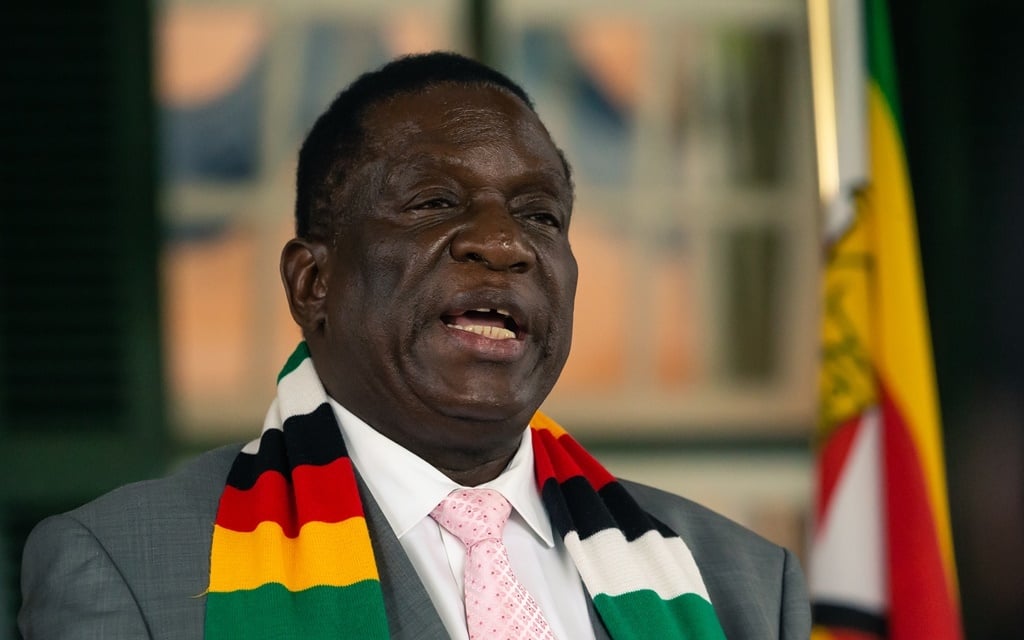

- Zanu PF says the law is modelled along the lines of the US’s Logan Act.
- Opposition politicians and critics say its the most draconian law ever passed in post-colonial Zimbabwe.
- The law seeks to penalise individuals who hold meetings with foreign diplomats or those who call for sanctions against the country.
Zimbabwe’s president Emmerson Mnangagwa is expected to sign into law the Patriotic Bill, which critics and the opposition say is the most draconian law ever passed in the country’s post-colonial history.
The bill is an amendment to the Criminal Law (Codification and Reform) Amendment Bill, which criminalises fundamental freedoms of association, assembly, and speech of any citizen who holds meetings with foreign governments through diplomats and other representatives.
The bill was passed on Wednesday by parliament in which the ruling party Zanu PF enjoys a more than two-thirds majority.
The party was accused of sailing through the legislation, regarded as a curtailment of freedom of expression, ahead of the 23 August elections.
Opposition legislator Temba Mliswa called the bill “a violator of freedom of expression and a curtailer of media freedoms”.
READ | US embassy in Harare warned over ‘meddling’ in Zimbabwe’s affairs after tweet about elections
Mliswa added: “Parliament should retain its stance and position as a chaste upholder and protector of democratic values. Mandatory processes should retain value over any party agenda.
“Laws like the Patriotic Act are simply and falsely couched as progressive, yet they contain within them the vestiges of the repressive and authoritarian stifling of democratic dissent.”
Citizens Coalition for Change spokeswoman Fadzayi Mahere said when the law was passed, it marked “a dark day for democracy”.
In its defence of the bill, Zanu PF claimed that the US had a similar law called the Logan Act of 1799, which criminalised negotiation by unauthorised American citizens with foreign governments having a dispute with the US.
The Patriotic Bill
According to Veritas, a legal monitoring organisation in Zimbabwe, some of the bill’s provisions state that a Zimbabwean could face up to 10 years in prison if they engage in talks with hostile nations about sanctions or a trade boycott.
Under the bill, if sanctions are enacted by nations based on advice from Zimbabweans, citizenship can be revoked, if the person is a citizen by registration or a dual citizen.
There is also a provision for cancellation of residence rights if the convicted person is a permanent resident of Zimbabwe. They may even lose their voting rights for five to 15 years. They may also be banned from holding public office for the same period.
The above speaks to the opposition, which Zanu PF has accused of encouraging sanctions against the country.
Opposition activists are invited from time to time to international platforms to speak about the situation back home.
Such gatherings are fertile ground for the government to prosecute them.
“Insofar as the new crime penalises the consideration, planning, or implementation of sanctions or boycotts, it will be a serious deterrent to free speech in Zimbabwe.
ALSO READ | Zimbabwe facing myriad ‘traditional’ obstacles ahead of general elections
“Not only will it be a crime to attend a meeting in order to plan or implement sanctions, but it will also be a crime if the meeting merely ‘considers’ them,” Veritas noted.
Some legal experts said the bill is ambiguously worded, complicated and difficult to grasp.
Therefore, it’s susceptible to misunderstanding, and law enforcement officials would probably interpret it broadly to fit their agenda.
Another bill that awaits the president’s signature is the Private Voluntary Organisations Amendment (PVO) Bill which seeks to monitor the operations of civic society groups. The PVO bill seeks to quash dissenting voices.
Want to discuss hotly debated topics with someone from across the world? Sign up for our global dialogue programme and get matched for a conversation
The News24 Africa Desk is supported by the Hanns Seidel Foundation. The stories produced through the Africa Desk and the opinions and statements that may be contained herein do not reflect those of the Hanns Seidel Foundation
